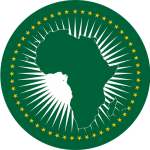Chinese automakers have set their sights on the Africa market and are moving fast to grab market share from legacy players in the combustion engine side of the business and to snag the first-mover advantage on the EV side as well.
Chinese automakers have been present in Africa for a number of years, particularly in more mature markets like South Africa. But 2021 is different, as the scale of engagement is ramping up big time.
Brands like Haval, BYD, Chery, and Great Wall Motors may be unfamiliar to most consumers in advanced economies, but they're becoming increasingly well known across the continent. In Zimbabwe, BYD has rolled out EVs with its new cobalt-free Blade battery; in Nigeria, Geely's Cool Ray SUV is selling well, as is Haval's H6 SUV in South Africa, where it's now among the top five best sellers.
And Chinese automakers clearly see an opportunity to bring their expertise in electric mobility to Africa by selling not just cars but also buses, scooters, and tricycles.
Latest China-Africa Automotive Headlines:
- ZIMBABWE: China's largest SUV manufacturer Great Wall Motors is now selling its P-Series pick-up in Zimbabwe through its local agent Zimoco. These EV trucks have great potential in the country's big game parks where tourists will be able to silently move through the parks compared to the much noisier combustion engine vehicles. (THE INDEPENDENT)
- SOUTH AFRICA: The state-owned Beijing Automotive Group (BAIC) launched its B40 Jeep-style SUV in the South Africa market. The military-inspired vehicle will be assembled at BAIC's local plant in the Eastern Cape. (NORTH COAST COURRIER)



















